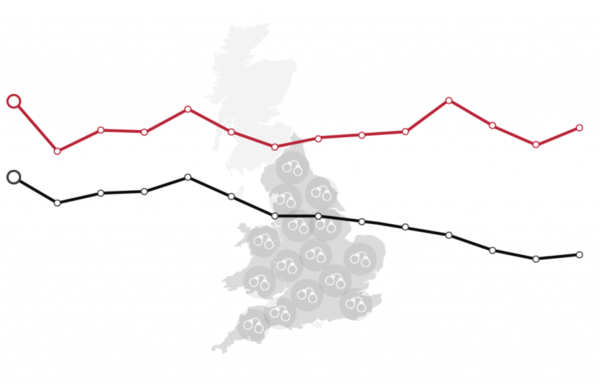Guide: Making Sense of Crime
This guide looks at some of the key things we do know about crime and why it has been so difficult to make sense of crime policy. [...]

I read in The Times (£, July 28th) and Evening Standard (July 27th) about a pilot scheme in four London boroughs testing a device called a 'sobriety tag'. These ankle bracelets monitor the alcohol intake of drinkers convicted of crimes as a way of preventing reoffending.
The scheme is being rolled out across London, and looks likely to be taken up elsewhere in the country, but does the evidence so far suggest the scheme actually works? I had a few questions from the pilot scheme that I put to the London Mayor’s Office for Crime and Policing:
Are there any comparable schemes elsewhere in the world? Similar ankle tags had been used successfully in the USA, most prominently in South Dakota. But there the bracelets are used as one part of a wider sobriety programme that includes daily breathalyser tests, urine analysis and skin patches to detect drugs and alcohol. Crucially it’s this wider programme that’s been shown to work. So although it’s plausible that ankle tags would reduce problem drinking – and by extension reoffending related to it – it isn’t clear whether using just one of these components will prove effective.
These questions matter because it's really positive to see a new intervention like this being tested - but it's important to know how robust the test was before it gets rolled out.
This ask for evidence story was written by Prateek Buch, policy director of Evidence Matters.
Image by Viewminder (CC BY-NC-ND 2.0)

This guide looks at some of the key things we do know about crime and why it has been so difficult to make sense of crime policy. [...]

I live in Belgium, and recently read that the Flemish Parliament was debating new EU rules restricting children’s use of social media by introducing a digital ‘age of consent'. As [...]
The team at GOV.UK want to know how they can better serve people who are attempting to hold the government to account, and understand the reasoning behind government decisions. Whilst you [...]

EU policy is made within the Brussels bubble, with Brussels-based think tanks and Brussels-based lobbyists. Even civil society organisations at EU level rarely speak to the people that they represent. [...]

When Nick, a former driving instructor, saw the road safety charity Brake tweet ... It's estimated that every 1mph reduction in average speeds, crash rates fall by an average of [...]

After reading an article stating that people receiving Universal Credit were “5 percent more likely to find employment within four months when compared to people claiming Jobseekers Allowance” I chose [...]